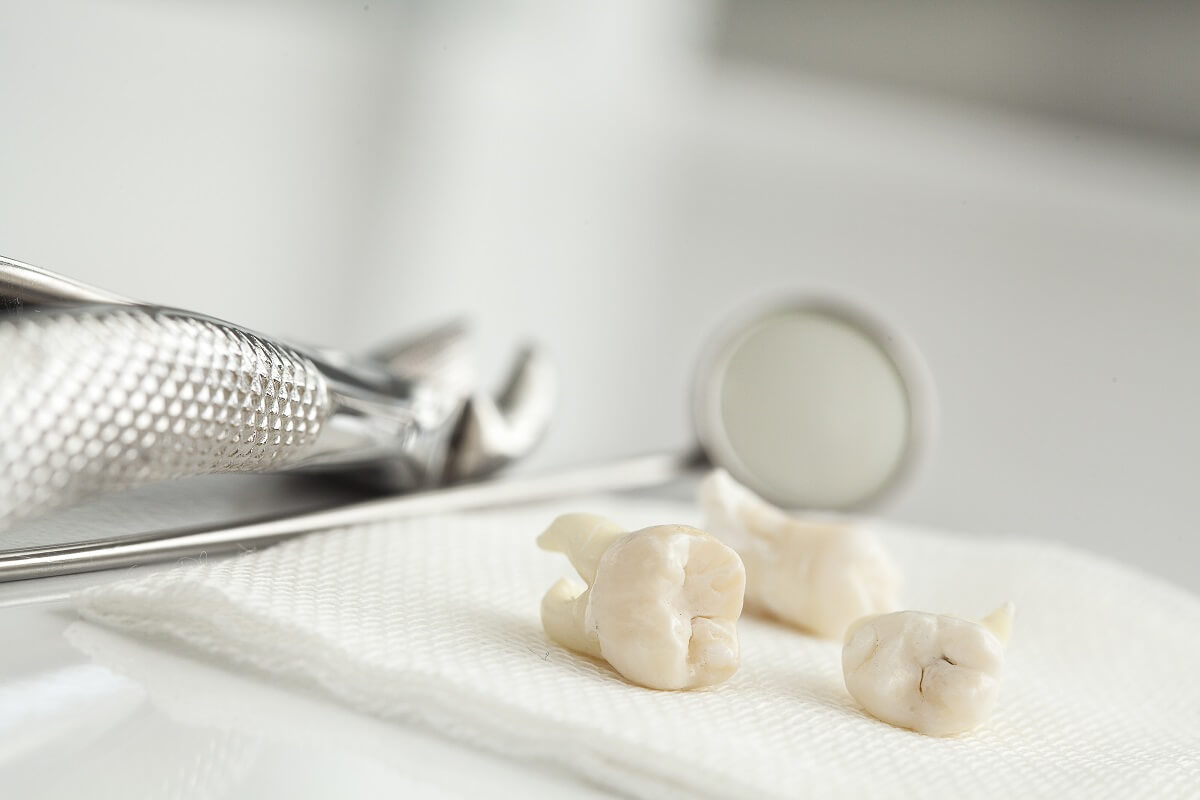Wisdom Tooth Removal: When it is Needed?
Wisdom teeth grow at the back of your gums and are considered the last teeth to grow. Most people do have four wisdom teeth, one on each corner.
Usually, wisdom teeth grow on the gums during the late teens or early twenties of a person. During this phase, the other 28 adult teeth are already in place. One reason why wisdom teeth always have not enough room in the mouth to grow properly.
Due to the lack of space, sometimes wisdom teeth emerge at an angle, get stuck or only emerge partially. Wisdom teeth that grow through this condition are known as impacted teeth.
What is Wisdom Tooth?
Wisdom teeth are the upper and lower third molars. These are located at the very back of your mouth (four corners). They are the last teeth to grow in the mouth.
They are called wisdom teeth because they usually come out when a person is between 17 and 21 years old. The age where it is enough to say that someone has gained some “wisdom.”

Some people have their wisdom teeth for their entire lives while others choose to remove their wisdom teeth. They wanted to remove these for some reason.
However, wisdom teeth need no removal if and only if:
- Your wisdom teeth are healthy.
- They grow completely.
- They are positioned correctly.
- You can bite properly with their opposing teeth.
- They are easy to access for cleaning, as part of daily hygiene practices.
Related article: How Often Do You Need Teeth Cleaning?
Why Wisdom Tooth Removal is Needed?
Most of the time some dentists recommend removing your wisdom teeth if they do not fully emerge. The majority of dentists believe it’s better to remove wisdom teeth at a younger age. The reason behind this is, roots and bone are not yet fully formed during early age. Also, during early ages recovery is generally faster after surgery. This is why some young adults prefer to have their wisdom teeth removed before the teeth cause complications.
Dentist recommends to have them removed for one of these following reasons:
- They are impacted. Since wisdom teeth are at the back of your mouth, there’s a tendency that they may not come out, normally. There is a chance that they can be trapped in your jawbone or gums, which is painful.
- They grow at the wrong angle. Sometimes they may press against your other teeth.
- Your mouth is not big enough. If your jaw has no room for an extra set of molars, wisdom teeth may be impacted.
- Out of reach. You can’t reach your wisdom teeth using your toothbrush or dental floss.
Below are some of the additional reasons why you need to remove your wisdom teeth.
According to the American Dental Association, wisdom teeth removal is necessary if you experience some of the following:
- Pain on your wisdom tooth
- Repeated infection on the soft tissue behind your wisdom tooth
- There are fluid-filled sacs (cysts)
- There are occurring tumours
- Damages to nearby teeth
- Gum diseases
- Severe tooth decay
Possible Risks if Wisdom Tooth is Not Removed
- Impacted tooth. When there is not enough room in your mouth for your wisdom teeth, they may get impacted. This happens when they do not come out naturally through your gums.
- Swollen gums. Your wisdom teeth may break through your gums in part ways. This will cause a flap of gum tissue to grow over the tooth. If food can get trapped under this flap, your gums become swollen, reddish and painful. Eventually, it will turn to infection.
- Wrong angle. It is recommended to remove if your wisdom teeth come in at the wrong angle. The top of the wisdom tooth may face forward, backward, or to other sides.
- Affects your other dental treatment. If your wisdom teeth may cause problems with future dental treatment, better to remove it.
- Cyst. A fluid sac may form around an impacted tooth. This sac may grow into a cyst.
- Cavities and gum diseases. Sometimes keeping your wisdom teeth can give you a higher risk of cavities and gum disease. The reason is, wisdom teeth are at the back of your mouth, making it hard to brush and floss. However, if you do teeth cleaning regularly with your hygienist these problems can be treated early.
Do’s and Don’ts After Wisdom Tooth Removal
Dos:
- Do a cold compress on your face to lessen the swelling or skin colour changes.
- Take the drugs your doctor prescribes to lessen the pain and swelling.
- Exercise your jaw. Gently open and close your mouth.
- Eat only soft foods like rice or soup.
- Drink plenty of liquids.
- If you experience a sore jaw, use moist heat.
- Brush your teeth the next day after the treatment.
- Immediately call your doctor if you have a high fever, or your pain and swelling worsen.

Don’ts:
- Don’t drink using a straw. Sucking loosens blood clots that help your mouth to heal, quickly.
- Do not eat hard, sticky or crunchy food, it can scratch your wounds.
- Do not gargle or rinse your mouth too harshly.
- Do not smoke. Smoking slows down your healing.
Related article: The Pros and Cons of Sedation Dentistry
Bottomline
If ever your wisdom teeth are causing severe pain then you should make an appointment to see your dentist. In Thornhill Dental, we will surely check your teeth and advise you whether you need wisdom tooth removal or not.
Contact us if you have questions about wisdom teeth removal or want to book an appointment.




